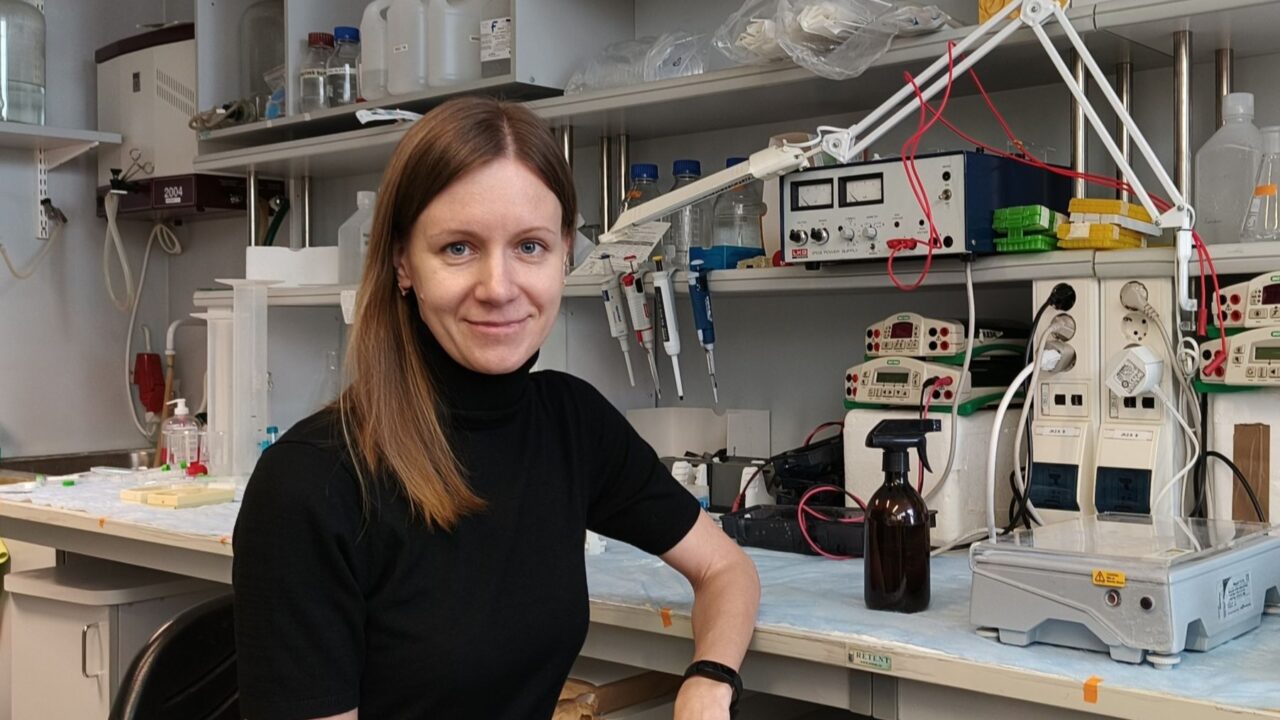Neuroepigenetics studies the activation of genes in the brain and offers new solutions for the prevention and treatment of diseases. At the heart of the field is the question of how brain cells decide which genes to activate and which ones to silence – the aim is to change not the DNA itself, but the mechanisms that control the “switching on” of genes.
Dr. Kärt Mätlik is leading a new neuroepigenetics research group at TalTech, focusing on how the “switching on” of genes in brain cells throughout life influences the development and functionality of nerve cells. The goal is to understand how to keep the brain healthy into old age. Having worked at the prestigious Rockefeller University in the United States, Mätlik brings world-class knowledge to Estonia, enabling new treatment methods and scientific collaboration.
Irreplaceable nerve cells
Mätlik explains that nerve cells are unique – they do not regenerate or get replaced. The same cell that forms in the fetus must remain functional even at the age of 80. To ensure this, the genes in brain cells must work accurately and consistently throughout life.
This is where epigenetic changes come into play – chemical marks on DNA and histone proteins that determine which genes get activated. While epigenetics is widely discussed in cancer research and stem cell studies, specific mechanisms in the nervous system have been less studied. This is partly due to the complexity of brain tissue, making it difficult to access and study brain cells.
However, in recent years, technology has advanced enough to allow more precise investigation of brain cell mechanisms. New studies have already shown that the epigenetic processes in the brain are different from those in dividing cells, which have been studied much more extensively.
Epigenetics as the future of brain health
What truly makes the field exciting is its practical potential. Many neurological diseases are associated with changes in gene expression – that is, which genes are activated or silenced at certain times. Today’s medicine often cannot answer why these changes occur or how to direct them. “There are no effective treatments for neurological diseases yet because we don’t know enough about what exactly goes wrong in the cells. If we understand how epigenetic mechanisms work in brain cells, we can guide them in the future – whether through lifestyle changes or precise medications.”
“There are no effective treatments for neurological diseases yet because we don’t know enough about what exactly goes wrong in the cells. If we understand how epigenetic mechanisms work in brain cells, we can guide them in the future – whether through lifestyle changes or precise medications.”
The brain ages not only from the outside but also at the cellular level. Gene activation changes, cells lose their flexibility, and nerve cells no longer communicate as effectively.
At the same time, it is known that epigenetic patterns are flexible and can be influenced by factors such as diet, sleep, and exercise. “If we can map out the epigenetic profile of a healthy nerve cell in the future – and find ways to support it – we can not only improve the treatment of diseases but also preserve brain health throughout life,” said Mätlik

TalTech researchers are studying how gene activation in brain cells affects brain health in old age. Photo: Pexels
A new hope for the brain
Although fundamental research is still largely being carried out, scientists are already seeing future collaboration opportunities involving companies and other research groups, especially when genetic precision and individual risks come into play.
TalTech tenured full professor of the Division of Gene technology and biomedicine Tõnis Timmusk , affirms: “There are no effective treatments for neurodegenerative diseases, but as life expectancy has increased, new treatment methods are being sought. One strategy is to develop epigenetic drugs in collaboration with different partners that can regulate gene activity according to the disease.”
“There are no effective treatments for neurodegenerative diseases, but as life expectancy has increased, new treatment methods are being sought. One strategy is to develop epigenetic drugs in collaboration with different partners that can regulate gene activity according to the disease.”
According to Timmusk, global interest has also increased: “The spread of neurodegenerative diseases and the limitations of current treatments have given science a clear signal – we need new strategies. And neuroepigenetics is one of the most promising practices.”
Mätlik’s research group aims to understand how epigenetic patterns determine the development and functioning of the brain, and how these patterns change during aging and disease. Such knowledge could provide us with more precise treatment and prevention methods, as well as possible lifestyle recommendations.
Timmusk believes that Mätlik’s research group will bring new knowledge to TalTech and the Estonian scientific community, strengthen international competitiveness, and create new collaboration opportunities in biomedicine and science more broadly.
“The spread of neurodegenerative diseases and the limitations of current treatments have given science a clear signal – we need new strategies. And neuroepigenetics is one of the most promising practices.”




